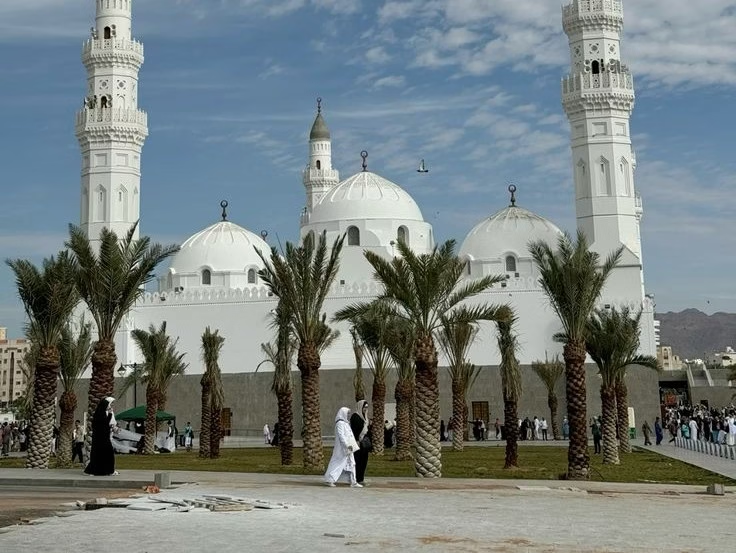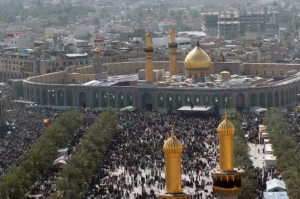Masjid e Quba: A Sacred Symbol of Islamic Heritage
Did you know there is a masjid (mosque) in Islam’s history where praying just two rakats of nafl is rewarded as much as an Umrah?
You might already be guessing, but here’s a clue: it is the first mosque built in Islam, a mosque that stands as a testament to the unwavering faith of Muslims who fled persecution yet remained steadfast in their religion.
Yes, it’s Masjid e Quba, built by none other than the Prophet Muhammad (PBUH).
A Brief Introduction
Masjid e Quba is the first mosque built in Islam by the Prophet Muhammad (PBUH), initially with the help of Hazrat Abu Bakr (RA) and later joined by Hazrat Ali (AS). The Prophet (PBUH) began constructing this mosque during his migration from Makkah Mukarramah to Madinatun Nabawi, escaping the brutal oppression of the kuffar of Makkah.
Located about 3.25 kilometers from Masjid e Nabawi, Masjid e Quba has been renovated multiple times, with the latest renovation in 1986. Historical accounts also suggest that this is where the Prophet (PBUH) and Hazrat Ali (AS) offered the first Jumu’ah (Friday prayer).
The History of Masjid e Quba
The land for Masjid e Quba belonged to the tribe of Bani Amr bin Auf. During his journey to Madina, the Prophet’s camel knelt at a blessed spot and drank from a well owned by Hazrat Abu Ayyub Al-Ansari (RA). Taking this as a sign, the Prophet (PBUH) chose that spot to build the first mosque in Islam.
Masjid e Quba holds a deep spiritual significance as it symbolizes the resilience and determination of the early Muslims, who left their homes to escape persecution but never abandoned their faith. The Prophet (PBUH) would visit this mosque every Saturday, sometimes walking and sometimes riding his camel.
Religious Significance and Quranic Reference
Masjid e Quba is praised in the Holy Quran for its purity and foundation on piety. Allah (SWT) mentions it in Surah At-Tawbah (9:108):
“Certainly, a mosque founded on piety from the first day is more worthy for you to stand in. In it are men who love to purify themselves; and Allah loves those who purify themselves.”
— (Surah At-Taubah 9:108)
Praying in Masjid e Quba holds immense reward. According to a Hadith:
“Whoever performs ablution at home and then prays in Masjid e Quba will have a reward equal to that of Umrah.”
— (Sunan Ibn Majah, Hadith 1412)
Ibn Umar (RA) narrated:
“The Prophet (PBUH) used to go to the Mosque of Quba every Saturday, sometimes walking and sometimes riding.”
— (Sahih Bukhari, Hadith 1193)
Conclusion
Masjid e Quba is not just a historical mosque; it is a symbol of perseverance, unity, and unwavering faith in the face of adversity. Its story reminds us of the strength and sacrifices of the early Muslims who remained steadfast despite great trials. May we learn from their resilience and dedication to Islam.
May Allah (SWT) strengthen our hearts, keep us firm on the straight path, and bless us with the resolve to remain devoted Muslims. Just as Masjid e Quba became a beacon of strength and faith for the early Muslims, may we too find strength in our deen and stay united in our commitment to Him. Ameen.
Sources:
Login required to like


